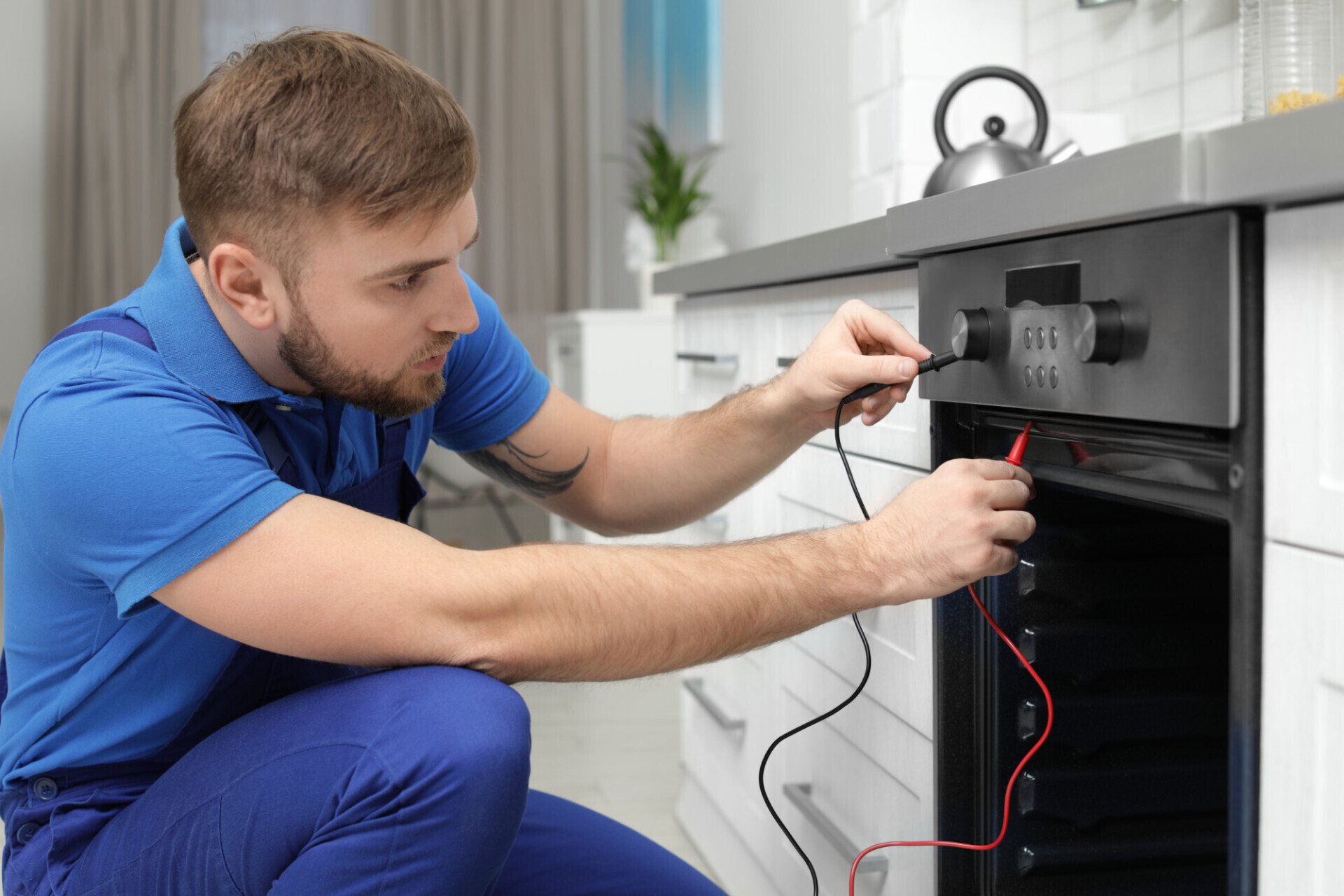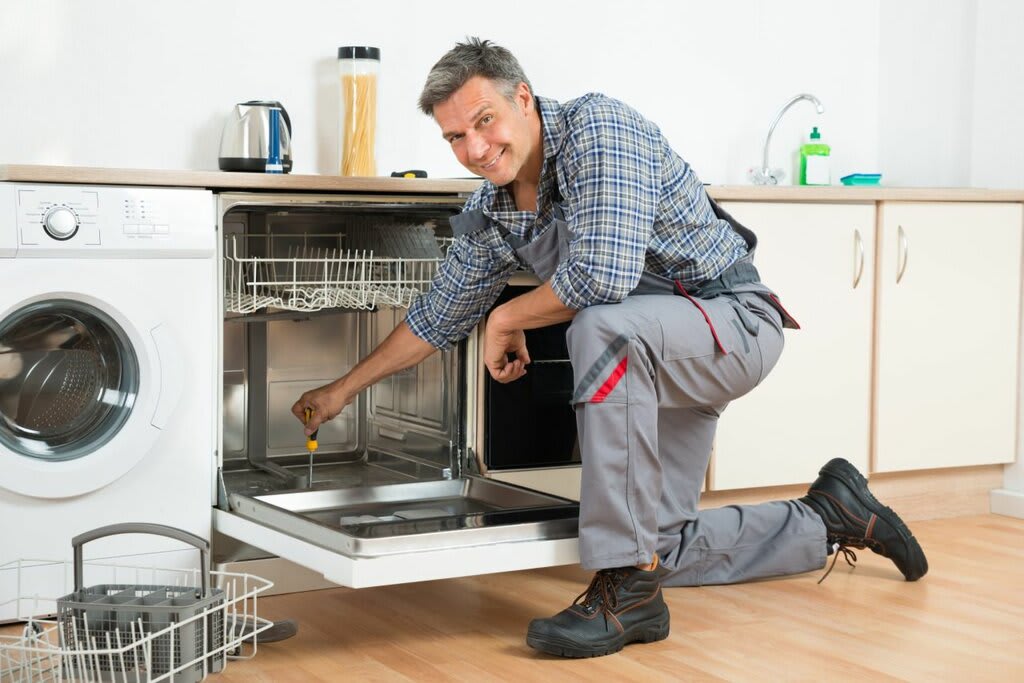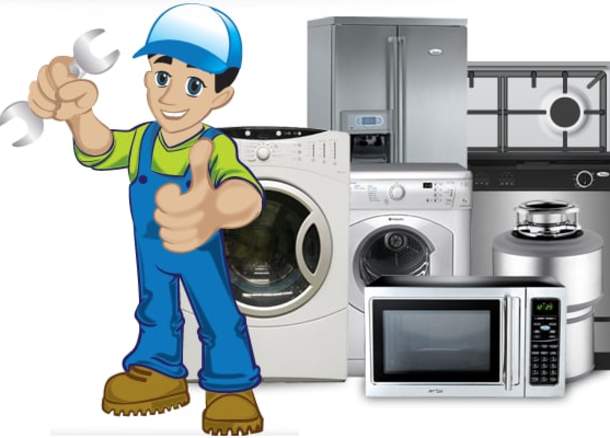The Ultimate Guide to Recognizing Home Appliance Fixing in your home
When your refrigerator stops cooling down or your stove declines to warm, it can feel overwhelming. Understanding home appliance fixing in your home can conserve you money and time. You'll find out to acknowledge symptoms, use vital devices, and adhere to an organized troubleshooting procedure. Prior to you begin, there are essential safety precautions you require to take right into account. What are one of the most usual problems, and how can you fix them? Let's explore the basics.
Typical Device Issues and Their Signs and symptoms
When your appliances begin breaking down, it's essential to recognize the indicators at an early stage. Disregarding them can lead to larger problems and expensive repair services. If your refrigerator isn't cooling appropriately, you might notice cozy areas or condensation developing. This might suggest a failing compressor or a blocked vent.Your dishwasher might show problems via unclean recipes or uncommon noises during cycles. If you hear grinding or clanking, it's time to investigate.A cleaning equipment that will not rotate or drain pipes can leave you with soggy washing, recommending a stopped up drainpipe or a malfunctioning pump.Lastly, if your oven's temperature level seems off or it takes forever to pre-heat, you could be managing a faulty thermostat. By remaining alert to these symptoms, you can attend to concerns prior to they escalate right into major repair services.
Necessary Tools for Device Repair Service
When you're dealing with home appliance repair work in your home, having the right devices is important. Fundamental hand devices like screwdrivers and pliers will certainly help you disassemble and take care of numerous appliances, while electrical testing tools ensure you're functioning safely with circuitry. Let's look at what you require to begin on your fixing trip.
Standard Hand Tools
Having the right tools is necessary for reliable device repair work in your home. Beginning with a reputable screwdriver collection, including both flathead and Phillips types, as screws are typical in device assembly. Pliers are likewise essential; they help with gripping, turning, and cutting cords or tiny elements. A pair of needle-nose pliers can get to limited spots easily. You'll require a great adjustable wrench for tightening or loosening up nuts and screws. An energy blade comes in handy for puncturing packaging or insulation. Do not forget a tough workbench or surface to securely arrange your tools and components. With these standard hand devices, you'll be well-prepared to deal with most device repairs that come your way.
Electrical Screening Tools
Together with basic hand devices, electrical testing tools play a vital function in appliance fixing. These tools aid you detect electrical problems and guarantee home appliances function safely. A multimeter is essential; it measures voltage, existing, and resistance, allowing you to determine troubles rapidly. A non-contact voltage tester is one more must-have, allowing you discover live wires without making straight call, enhancing your security. Secure meters are fantastic for determining existing circulation in wires without disconnecting them, conserving you effort and time. Additionally, circuit testers can swiftly examine if electrical outlets are functioning correctly. By making use of these tools, you'll streamline your troubleshooting process and enhance your fixing skills, making appliance maintenance a great deal less complicated.
Step-by-Step Overview to Diagnosing Appliance Issues
When your appliance acts up, it can be discouraging, yet detecting the concern doesn't have to be overwhelming. You'll discover to determine usual troubles and use reliable repairing strategies. Allow's go through the actions to obtain your device back in working order.
Usual Appliance Problems

Repairing Techniques Explained

Repairing Major Kitchen Area Home Appliances: A Closer Look
Have you ever asked yourself just how to take on typical issues with your cooking area devices? Repairing major cooking area home appliances like refrigerators, stoves, and dishwashing machines can be easier than you assume. Begin by identifying the trouble-- whether it's a fridge not cooling or a stove that won't warm. Usually, a basic reset or checking the power resource can resolve the issue.For refrigerators, clean the condenser coils and inspect the door seals. If your oven's not heating, evaluate the burner and thermostat. Dish washers could just require a tidy filter or a reset to get them back at work. Constantly disconnect the device before diving into repair work to ensure your safety.Don' t forget to get in touch with the user handbook for details troubleshooting ideas related to your design. With a little patience and the right tools, you can with confidence take on appliance repair work and conserve cash while doing so!

Troubleshooting Washing Appliances: Tips and Techniques
When your washing appliances start breaking down, it can feel frustrating, but fixing them doesn't have to be an inconvenience. Beginning by inspecting the power supply. Validate the home appliance is connected in and the outlet is operating. Next, examine the door or cover switch; a malfunctioning switch can avoid the equipment from operating.For washers, if it's not spinning, examine for out of balance loads. Redistributing the garments could solve the problem. If your dryer isn't home heating, clean the lint filter and inspect the vent for blockages.Listen for unusual noises; they can indicate an issue. If your device is site link leaking, examine the hoses for fractures or loosened links. Paper any kind of error codes shown on digital screens, as they can direct you in recognizing the concern. Finally, seek advice from the customer guidebook for specific troubleshooting suggestions associated to your version.
Safety Precautions to Take During Fixes
Prior to you begin any kind of device repair work, it's necessary to prioritize safety and security to avoid accidents or injuries. Disconnect the home appliance or turn off the circuit breaker to guarantee no power reaches it while you function. Use protected tools to reduce the danger of electric shock. Use safety goggles and gloves to shield on your own from sharp edges or debris (Dependable Refrigeration & Appliance Repair Service Dryer repair near me).Make particular your office is tidy and well-lit, so you can see what you're doing. Maintain children and pet dogs away from the location to prevent interruptions and possible risks. If you're dealing with gas home appliances, be extra careful; check for leakages prior to proceeding.Take your time, and don't hurry through repair services. If you feel uncertain regarding any kind of action, it's better to stop briefly and research than to guess. Adhering to these preventative measures will aid develop a much safer environment for your do it yourself home appliance repair work task
When to Call a Professional for Assistance
Just how do you know if it's time to call a professional for home appliance repairs? If you've tried standard troubleshooting without success, it's a clear sign. If your device still won't begin or shows uncommon sounds after resetting it, do not be reluctant to look for professional help.When you notice leaks, smoke, or melting smells, prioritize safety and call a pro right away. These concerns can lead to more significant damage or position dangers to your home.Also, if your home appliance is under guarantee, calling a specialist is frequently the finest path. They can ensure that repair services will not invalidate your guarantee, conserving you cash in the lengthy run.Finally, if you're not sure or uneasy with complicated fixings, it's important to leave it to the professionals. Keep in mind, dealing with difficult issues without the appropriate knowledge can lead to expensive blunders. Depend on a professional when unsure!
Frequently Asked Questions
Just How Can I Avoid Appliance Problems in the Future?
To avoid home appliance problems in the future, you ought to perform normal maintenance, look for deterioration, clean filters, and stay clear of overloading. Remaining positive will aid prolong their life expectancy and maintain them running efficiently.
What Are one of the most Usual DIY Device Repair Work Mistakes?
You might forget security precautions, miss fixing actions, or utilize incorrect devices when trying DIY appliance fixings. Rushing the procedure or neglecting producer standards can result in even more considerable issues and pricey mistakes. Remain patient and educated!
Exactly how Do I Know if a Component Requirements Substitute?
You can inform if a part needs substitute by checking for uncommon sounds, leakages, or inconsistent performance. If the appliance struggles to operate correctly or reveals visible damages, it's most likely time for a replacement.
Can I Utilize Generic Components for Appliance Repair Works?
Yes, you can make use find out here of common parts for Look At This home appliance fixings, but establish they're suitable - Lg Dryer repair near me Dependable Refrigeration & Appliance Repair Service. Common components may conserve you cash, however they might affect efficiency or durability, so evaluate your choices meticulously prior to deciding
What Service Warranties Cover Device Repairs?
Most appliance warranties cover repairs for manufacturing defects, but they typically leave out damage from abuse. Examine your service warranty terms very carefully, as some may need using certified specialists and original components for insurance coverage to continue to be valid.